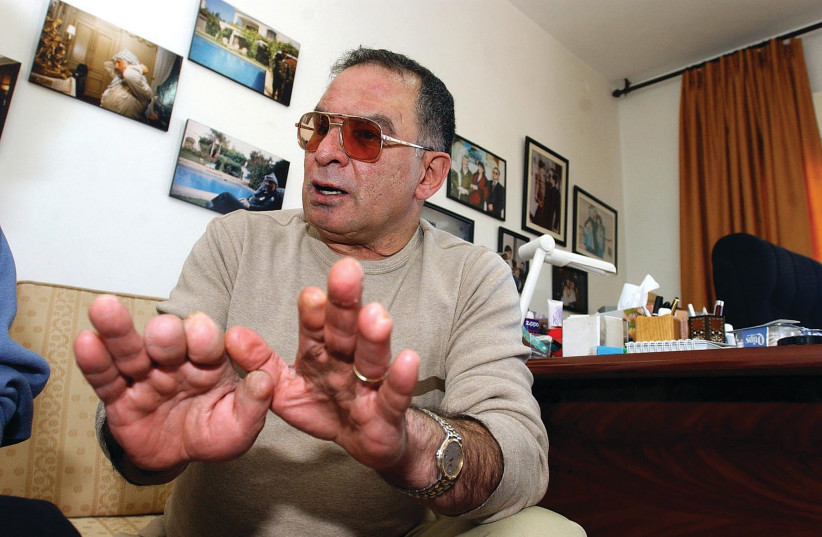Palestinian Authority President Mahmoud Abbas is punishing his critics by revoking their diplomatic passports, Palestinians said on Thursday. At the same time, Abbas is using the passports to reward his loyalists, they added.
In the past few weeks, a number of senior and veteran Palestinian officials were informed that their diplomatic passports would not be renewed.
They include Nasser al-Kidwa, a former PA foreign minister and envoy to the United Nations, and Bassam Abu Sharif, who served as an adviser and spokesperson to former PLO leader Yasser Arafat.
Both Kidwa and Abu Sharif have openly criticized the PA leadership on a number of occasions.
Kidwa, a nephew of Arafat and senior member of the ruling Fatah faction, enraged Abbas when he decided last year to form his own list to run in the Palestinian parliamentary elections that were supposed to take place in May.

Abbas called off the elections on the pretext that Israel had refused to allow the vote to take place in Jerusalem.
Earlier this month, Abbas signed a law that gives him the authority to grant diplomatic passports to anyone he wishes. The decision was aimed at facilitating the participation of several Palestinians in the meeting of the Palestinian Central Council (PCC), a PLO decision-making body, in Ramallah on February 6.
The PCC session was boycotted by four Palestinian factions and several Palestinian figures, who accused Abbas of convening the council to approve the appointment of four of his loyalists to senior positions in the PLO and its legislative body, the Palestinian National Council (PNC).
After a two-day meeting, the PCC announced that it had approved the appointment of Hussein al-Sheikh as member of the PLO Executive Committee and Rouhi Fattouh as speaker of the PNC.
Critics say that the PA Ministry of Foreign Affairs should be the only body authorized to issue diplomatic passports that give their holders privileges similar to those who hold VIP cards.
“The new law means that President Abbas can decide who gets the passport and who doesn’t,” legal expert Ibrahim Barghouti told the Al-Araby Al-Jadeed website. “The problem with the law is that it also increases the number of people who are entitled to hold diplomatic passports. This means that the passport could be issued to people who do not work in the diplomatic field.”
According to the law, the diplomatic passport will be withdrawn from its holder in cases of “loss of Palestinian citizenship, a ruling against its holder by a disciplinary council or a court in a felony involving moral turpitude or breach of trust, support or advocacy for an external or internal party against the State of Palestine, or threatening its national interests, constitutional stability, order and civil peace, or if the diplomatic passport is used to commit a crime punishable by law.”
Kidwa said in response to the decision not to renew his diplomatic passport that the “system stipulates that [real] members of the diplomatic corps and current and former ministers are entitled to obtain the passport. I was Palestine’s ambassador to the United Nations and a former foreign minister; I even contributed to the establishment of the diplomatic passport system. I don’t understand why the president is being consulted [about the passports].”
Kidwa pointed out that the PA listed his profession in the ordinary passport issued to him as “dentist,” although he had never practiced the profession. He expressed fear that the withdrawal of his diplomatic passport could limit his movements.
Abu Sharif, for his part, condemned the decision not to renew his diplomatic passport. He claimed that the PA leadership has issued diplomatic passports to people “from the mafia” who are wanted by the Interpol.
“If Palestinian passports are being granted to the mafia guys, we don’t want them,” he said.
Hassan Khreisheh, deputy speaker of the Palestinian Legislative Council (PLC), the Palestinian parliament that was dissolved by Abbas in 2018, said that the general Palestinian political situation “is going from bad to worse in light of the absence of elected legislative institutions and the one-man rule” of Abbas.
The last elections for the PLC were held in 2006.
Khreisheh, an outspoken critic of the PA leadership, said the decision to withdraw the diplomatic passports from Kidwa and other senior Palestinian officials was a violation of the Palestinian Basic Law.
“The new law gives the president the powers to grant and withdraw the passport according to his mood,” Khreisheh told the Palestinian Khabar news agency. He revealed that Abbas has already revoked the diplomatic passports of a large number of PLC members.”
